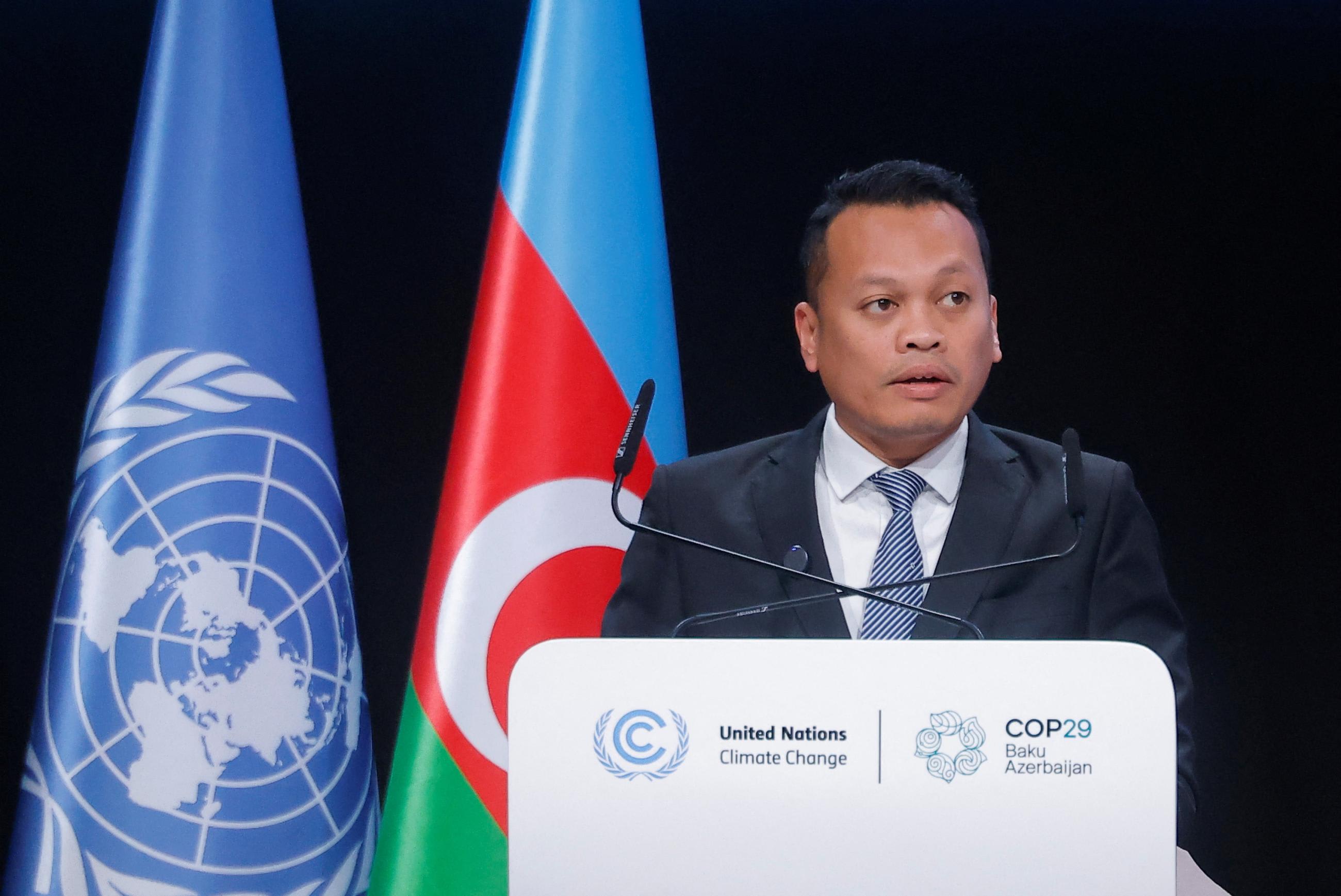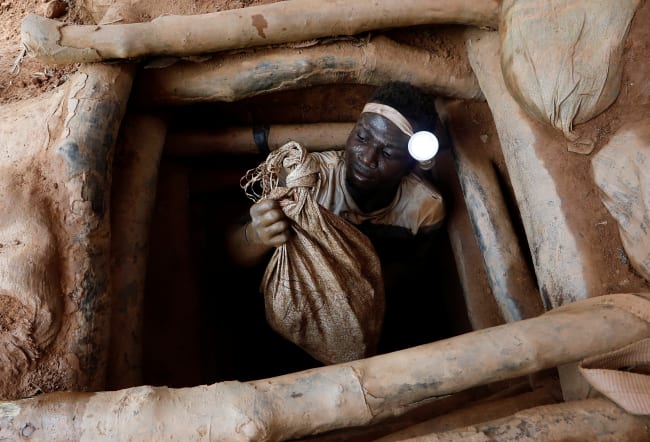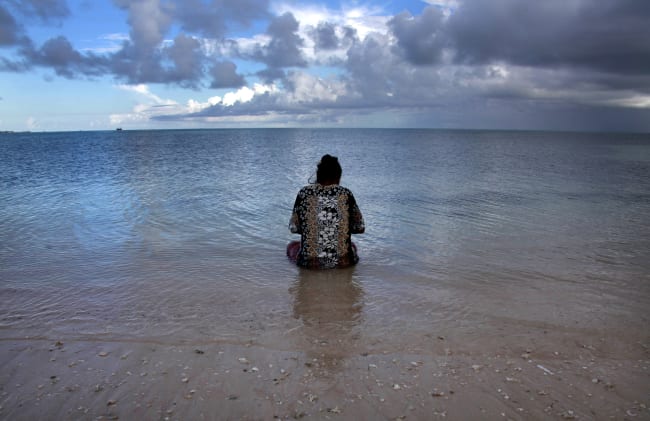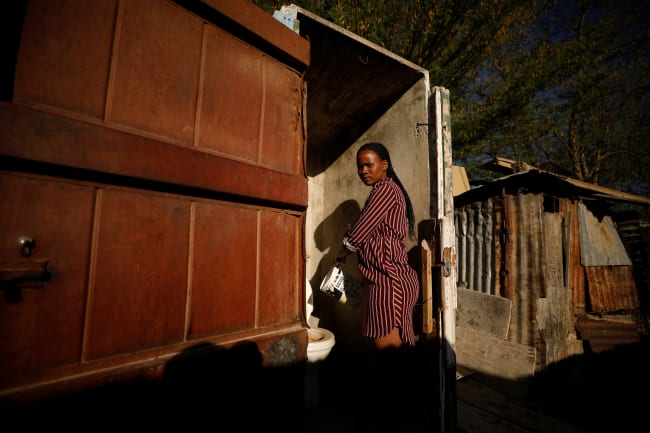Days before this year's UN climate summit (COP29) got under way, the reelection of U.S. President Donald Trump, who openly opposes the Paris Agreement, dampened hopes for more ambitious global commitments to tackle climate change. Health experts are calling on the sector to respond by homing in on the bottom line that matters to policymakers and private enterprises.
"The largest historic emitter is going to likely pull out of Paris," says Vanessa Kerry, CEO of Seed Global Health and WHO special envoy for climate and health. "We can mourn this election, but we can't lose sight of the fact that the argument remains the same."
That argument should bring health impacts to the fore and focus more squarely on making the connection with economic cost, Kerry says, because it's the smart and pragmatic way to go. "That is what motivates the majority of the private sector and the majority of our policy leaders."
Her remarks were echoed by other speakers in a meeting convened earlier this month at the London School of Hygiene and Tropical Medicine (LSHTM) to take stock of expectations for the COP29 summit under way in Baku, Azerbaijan.
Each year, climate negotiators pore over the text of official agreements, yet global temperatures keep climbing
Each year, climate negotiators pore over the text of official agreements, yet global temperatures keep climbing and indicators of related threats to health and survival reach record highs. Scientists' warnings for more frequent and intense weather extremes are now a reality in regions hit by heat waves, catastrophic flooding, or dangerous wildfires.
Although low-income countries bear the brunt, rich nations aren't spared. Late October saw Europe's deadliest floods in decades when torrential rains in Spain's Valencia region left more than 200 people dead, displaced thousands, and caused devastating damage disrupting the lives of more than a million. Héctor Tejero, senior advisor on climate change and health at the country's Ministry of Health, believes that the human cost of these experiences is persuasive enough.
"Health is, for sure, one of the most important arguments to push for climate action," says Tejero. "Global consensus is coalescing about this. But I don't think the economic losses [are] the main argument."
A Higher Profile
After decades in the margins, the health sector is raising its profile in high-level climate debates, and 2023 was a milestone year. A declaration adopted at COP28 marked the first official recognition of how climate change connects with health. Despite criticism of its failure to call for a fossil fuel phaseout, the declaration raised hopes that health would now feature in official proceedings and countries' plans.
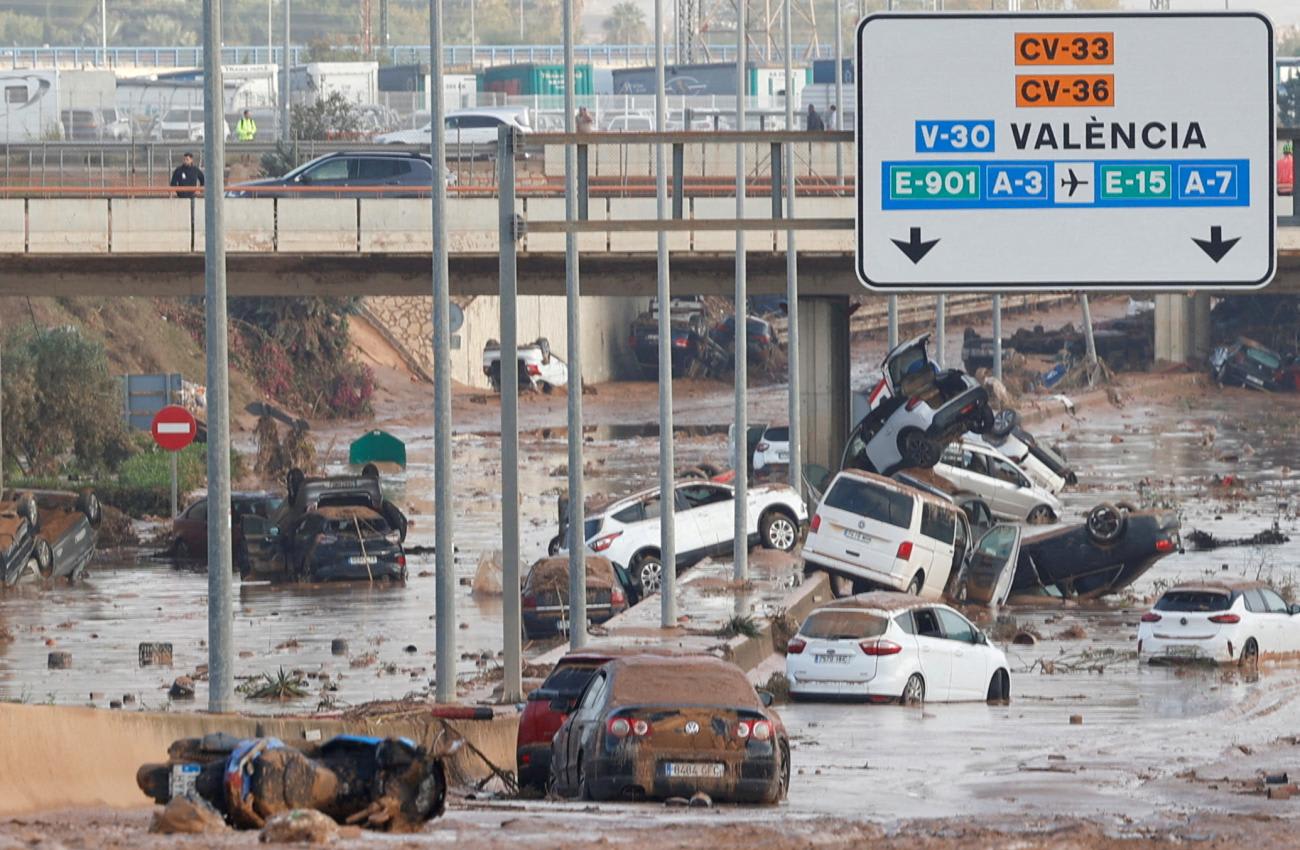
Since then, progress has been mixed. A follow-up resolution adopted at the World Health Assembly gave the declaration a stronger mandate. Health is now on many countries' climate agendas and more visible in global debates. But declarations aren't binding. No mechanism is in place to track whether commitments are turning into concrete plans. Unlike last year's summit, the COP29 agenda did not dedicate a full day to health.
Tejero takes the long view. "COPs have their rhythm," he observes. "It's probably not as fast as we want. But for sure, they have an effect." Tejero believes that the sector is on its way to the negotiating table. "A lot of people [are] realizing that health is the real argument to push for climate action."
After COP29, "we need to branch out beyond the health-care sector," said Sarah Whitmee, assistant professor at the LSHTM, at the London meeting. Whitmee called for the health community to engage ministers from other sectors with evidence on the economic as well as human losses linked to a changing climate.
Those costs are growing, according to figures in the latest Lancet Countdown report. Every year from 2019 to 2023, global economies lost $199 billion because of deaths linked with extreme heat, up 179% from the start of the century. In terms of labor productivity, exposure to extreme heat in 2023 led workers to lose 512 billion hours of work capacity, amounting to a record-high $835 billion in potential lost income. The price tag of extreme weather events is estimated at $212 billion for 2023 alone.
The price tag of extreme weather events is estimated at $212 billion for 2023 alone
When health suffers, people can't get to work and productivity drops. More illness means a higher financial burden on the health-care system. Those costs mean that countries can save lives and money by funding health-centered climate policies, according to Kerry, who points to evidence of investments in the sector boosting income for households and economies. "We see savings," she says. "We see stronger economies. We see individual security. We see a reduction of the inequities."
Persuasive Power
Malaysia is one example where appealing to economic concerns helped persuade the government to act. On November 4, the prime minister endorsed a National Planetary Health Action Plan set to go into action next year.
Jemilah Mahmood, executive director of the Sunway Centre for Planetary Health at Sunway University in Petaling Jaya and formerly a special advisor to Malaysia's government, was involved in the push to shape the plan, a first for planetary health in the region.
"You really have to be very persistent," Mahmood said at the London meeting, outlining how that push built on momentum from a summit focused on forming a "roadmap," solicited feedback from the public and worked with policymakers. "What we did for success is also showing economic figures on the prevention of loss in a country that's aiming to be a high-income country," she said.
Neighboring countries are looking to follow suit just as Malaysia prepares to take over as chair of the Association of Southeast Asian Nations (ASEAN) next year. "The elephant in the room is that we lack global leadership," says Mahmood. "In Asia now, the leadership is emerging."
Tejero believes that for some countries already rattled by weather extremes, the impact on people's lives is enough to get public and political support. Spain's government made clear that the recent floods are linked to climate change, he says. A national plan to manage extreme heat launched soon after the 2003 deadly heatwave in western Europe. But public support for climate and health policy doesn't always take dramatic events. Over a couple of decades, summers have grown longer with more days on red alert. In the worst cases, workers are dying from heat strokes.
"It's a noncontroversial issue, and it's a very powerful issue right now," says Tejero. "Talking about health always works, [on] the left and the right. In my opinion, this is useful."
On the global stage, since the U.S. election, Kerry argues that climate action needs to be made more appealing to those who might not traditionally see it as such.
"We have to be very pragmatic," Kerry says. "We're going to have to—in addition to pointing out the lived experience of climate change—make the connection with the economic costs."
